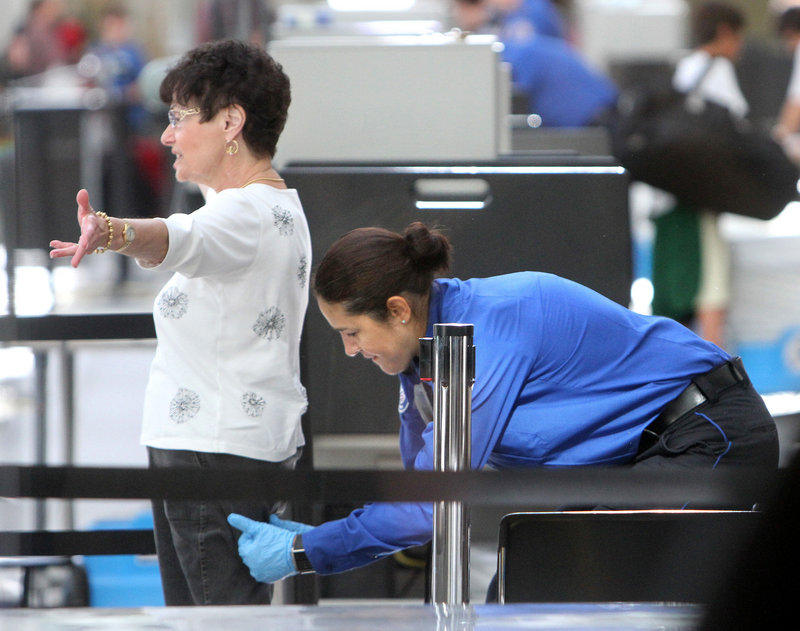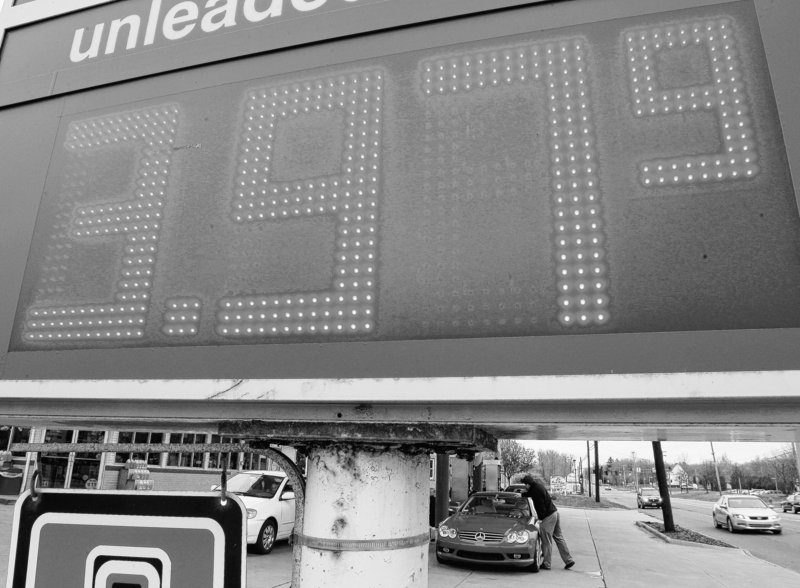NEW YORK – Security screening at airports will still be a hassle and raise the cost of travel. Laws that turned banks into financial cops will stay in place. And most companies will still spend more to ship goods and secure their computer systems.
Osama bin Laden’s death won’t reverse the transformation of business that followed the Sept. 11 attacks.
The attacks fueled higher corporate spending on security and intelligence — costs that have been passed on to consumers. Those surging gas prices that motorists are cursing are higher, in part, because the bin Laden-driven attacks raised fears that terrorists might disrupt the flow of Middle East oil.
No matter what happens next, bin Laden’s legacy has meant costs and fees that business and consumers had never faced before and that aren’t about to go away.
“The cost of doing business has gone up permanently since 9/11,” said Sung Won Sohn, an economics professor at California State University.
Here’s a look at how different industries and sectors were reshaped by the Sept. 11 attacks:
AIRLINES
The terrorist attacks turned the act of flying into a test of patience. Air travel changed from a routine exercise — almost as simple as hopping on a train — into a process of seemingly ever-changing rules and procedures and time-hogging scrutiny. The role of flight attendants changed from serving coffee and a meal with a smile to being a first responder with a need for combat training.
In the near-decade since 9/11, passengers have been forced to take off their shoes, throw away containers containing more than 3.4 ounces of liquid and, more recently, subjected to full-body scanners if they want to avoid pat-downs that have sparked complaints about invasions of civil liberties.
It also caused deep financial hardships for an industry that had long struggled to maintain profits. Besides having to charge a $2.50-per-flight fee to help bankroll the Transportation Security Administration, most airlines now charge to check baggage, too. That adds $100 to $200 to the cost of flying for many travelers.
The good news: An airline ticket itself costs slightly less than it did before the attacks. That’s largely because airlines remade themselves into leaner operations, desperate not to lose money after a wave of bankruptcies triggered by 9/11.
The list of post-attack bankruptcies included US Airways in 2002 and 2004, United in 2002, and Northwest and Delta in 2005.
ENERGY
Electricity and other energy costs are likely higher than they would be had the Sept. 11 attacks not occurred. Power plants and energy transmission networks are deemed to be potential terrorist targets. So the security costs related to them have risen, with costs passed along to customers.
After 9/11, U.S. oil refineries were subjected to increased and costly security measures that remain in place, says Bill Day, spokesman for Valero Energy, the nation’s largest independent refiner. Bin Laden’s death prompted Valero to increase security at its 14 refineries as a precaution.
Michael Lynch, president of Strategic and Economic Research Inc., says oil has been more expensive over the past decade because traders have worried that al-Qaida could disrupt supplies by attacking refineries, pipelines or ports in the Middle East.
TECHNOLOGY
The attacks spurred more demands for more sophisticated computers and software.
The fear of another destructive attack that might target information technology, or IT, forced companies to hustle to upgrade their security software. This included heavy-duty encryption and data-recovery protections. The urgency has been especially felt in banking and government, and for operators of bridges, tunnels and power plants.
“The one thing 9/11 really brought to life was how organized the terrorists were,” said Patrik Runald, who runs the U.S. security lab for Websense Inc., a San Diego-based Internet security firm. “People started realizing, if they’re so organized when it comes to physical attacks, what if they were that organized when it comes to cyber-attacks?”
PORT SECURITY
Before 9/11, port security focused almost solely on smugglers and thieves. Now, the focus has shifted to international terrorism threats. And that’s raised the cost of doing business.
“We are really looking at threats through a different lens,” said Aaron Ellis, a spokesman for the American Association of Port Authorities.
There are more guards, and radiation and gamma ray technology is used to scan containers and ships. Unusual shipments like artillery or chemicals draw extra attention.
Send questions/comments to the editors.




Success. Please wait for the page to reload. If the page does not reload within 5 seconds, please refresh the page.
Enter your email and password to access comments.
Hi, to comment on stories you must . This profile is in addition to your subscription and website login.
Already have a commenting profile? .
Invalid username/password.
Please check your email to confirm and complete your registration.
Only subscribers are eligible to post comments. Please subscribe or login first for digital access. Here’s why.
Use the form below to reset your password. When you've submitted your account email, we will send an email with a reset code.